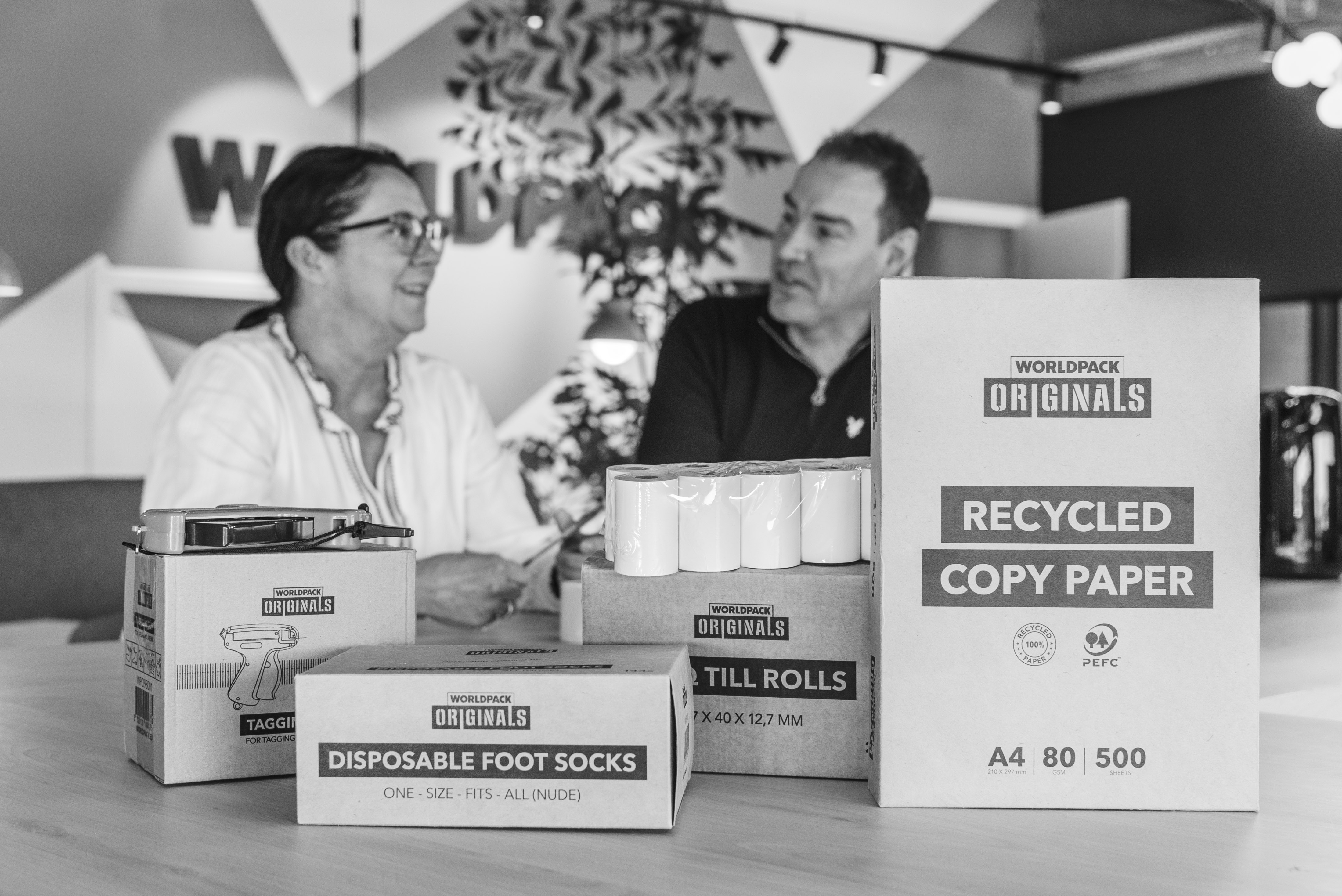This is difficult for retailers to overcome, when consumers are more and more inclined to spend money with brands that are transparent and mindful of their environmental impact.
Mitigating your environmental impact can feel hugely challenging, as continued disruption to supply chains and inflation pressure on resource prices mean making the right decision is much harder. It can be tempting to opt for quick fixes that immediately satisfy your customer demand – delivering a product or service at whatever cost.
But short-term fixes can undermine your brand integrity which will create larger problems further down the line.
Here are some immediate steps you can take to continue to meet your ESG goals even when it’s challenging.
Sustainable packaging
Making changes to your existing packaging, and moving away from traditional plastic production, opting for biodegradable plastics or recycled cardboard, helps to minimise your waste generation. Even small things like reducing the amount of empty space in your packaging boxes can reduce your material usage and transportation emissions. Worldpack’s own range of GNFR goods – Worldpack Originals - are packaged with sustainability in mind. For instance, instead of sending out one item in a lot of plastic packaging, we send our tagging guns in a plain box as a set of four. From a packaging waste and a freight point of view, this is a much better solution for the customer and the planet.
Optimise your last-mile delivery
Collaborating with logistics partners to optimise your delivery routes and schedules minimises the carbon emissions associated with last-mile deliveries. Choosing a logistics partner that uses electric or hybrid delivery vehicles is another way to drastically bring down the environmental footprint of your deliveries. Between 20% and 30% of a city’s carbon dioxide emissions come from last-mile deliveries.
Supply chain resilience
We wrote in detail last year about our own efforts to transform our supply chain, to make it more resilient to global disruption and help the environment. Localisation is vital for this. Localising your supply chain helps to reduce transport emissions and costs, minimising the risk of large-scale disruption and helping you to be truly transparent with your customers about emission levels and environmental impact.
Energy efficiency upgrades
Retrofitting your stores with energy-efficient lighting, heating, and cooling systems can significantly reduce your energy consumption. Again, this is something we’ve committed to in previous years and we’re already seeing impressive results. Incorporating smart technologies like motion sensors and programmable thermostats can further optimise your energy use. Taking these steps also provides you with reportable savings and reductions in carbon emissions that you can provide to your customers.
Incentivise sustainable practices
Encouraging your customers to opt for eco-friendly choices, like reusable shopping bags, digital receipts, and slower delivery options can help create instant reductions. You can also opt to reward your customers for their sustainable choices through loyalty programmes or unique discounts to help foster a culture of sustainability and give you data to report on.
With some small changes, you can reduce your operational costs, enhance your customer satisfaction, and show your commitment to environmental practices that benefit everyone.
If you’re ready to start taking sustainability seriously, we’re here to help you with our Service with Guts. Speak to our team on +31 (0) 88 494 20 80 or email us at online@worldpack.eu


